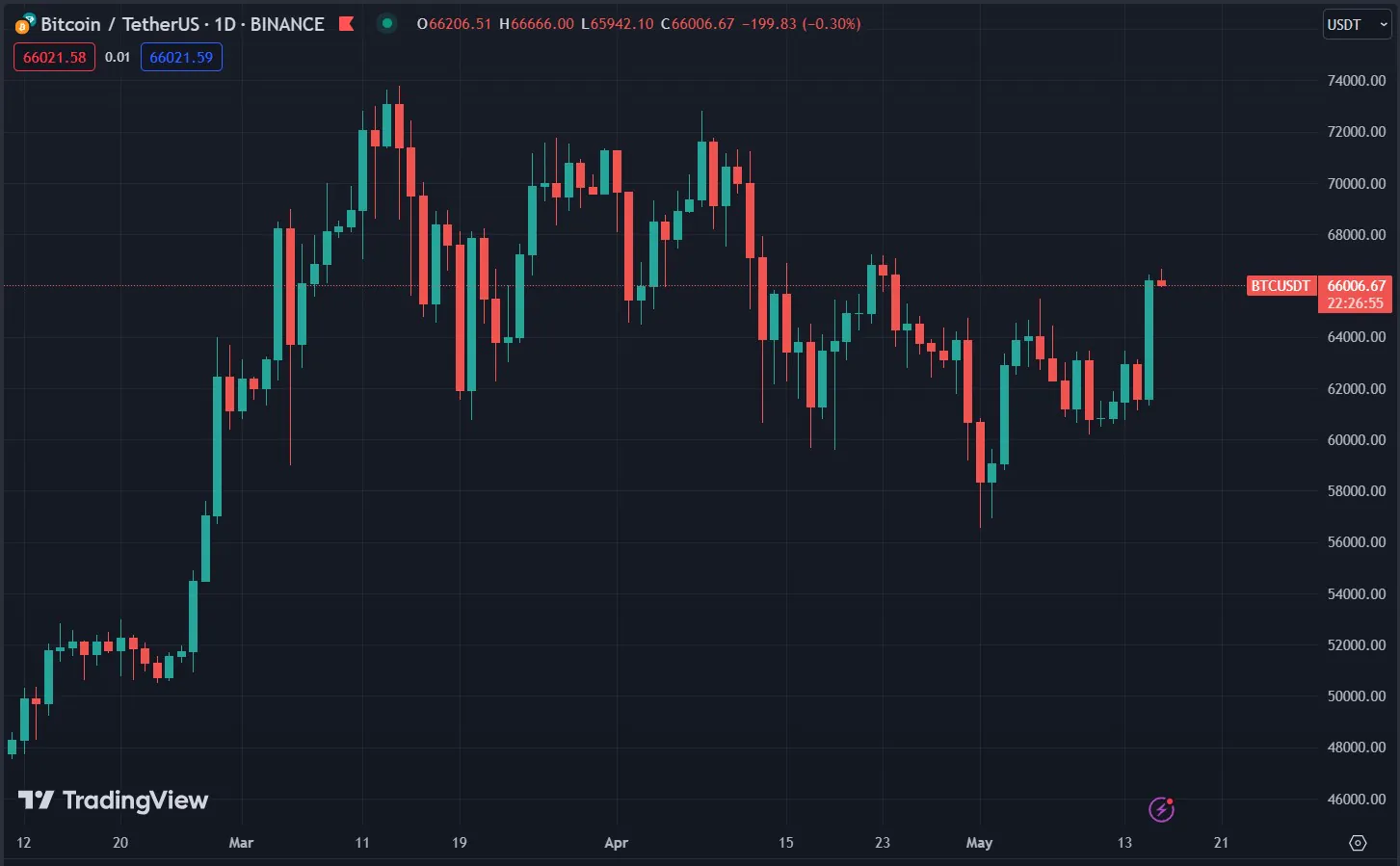In the past 24 hours, Bitcoin (BTC) has surged to $66,000, marking a notable 7% increase in just one day. This significant rise is influenced by various macroeconomic factors, including the latest U.S. inflation data.
Bitcoin’s Price Rises as U.S. Core Inflation Falls
The recently released U.S. Consumer Price Index (CPI) data indicates that core inflation has dropped to a three-year low of 3.4%. This decline has spurred activity in the Bitcoin market, drawing considerable interest from major global banks. The correlation between lower inflation and increased investment in digital assets suggests that investors might view Bitcoin as a hedge against economic instability.
The favorable inflation numbers also signal the potential for upcoming U.S. interest rate cuts. Although the Federal Reserve has adopted a cautious “wait and see” approach, the latest data could expedite their timeline. However, concerns remain about the pace of inflation reduction, which might limit the scope for rate cuts this year.

Major Banks Boost BTC Through ETF Investments
Bitcoin’s price surge is also driven by growing institutional interest, particularly in Bitcoin ETFs. Recent SEC filings reveal that leading banks such as JPMorgan and Wells Fargo, along with international banks like UBS and Bank of Montreal, have made significant investments in Bitcoin ETFs. These disclosures have played a crucial role in boosting Bitcoin’s market value.
Further fueling the market are investments from entities like the State of Wisconsin Investment Board, which recently invested $99 million in BlackRock’s Spot Bitcoin ETF. This influx of institutional capital not only underscores Bitcoin’s investment appeal but also enhances its legitimacy and stability as an asset class.
Related: How Will Bitcoin Move After Dropping to $61,700?
The ETF market remains vibrant with the anticipation of more institutional participants. A notable recent development is the appointment of Salim Ramji, former global head of ETFs at BlackRock, as CEO of Vanguard. Previously, Vanguard had prohibited spot Bitcoin ETFs, but under Ramji’s leadership, it may reconsider its stance, potentially leading to greater institutional involvement.
This shift could sustain Bitcoin’s upward trend as more institutional investors incorporate Bitcoin into their portfolios. The ongoing development in the ETF sector, coupled with macroeconomic factors, provides a robust framework to understand the recent and continuous rise in Bitcoin’s value.







Movee